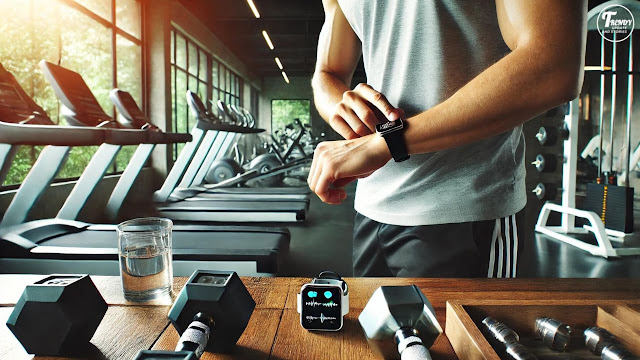How Smart Devices Are Changing the Way We Stay Fit
1. Monitoring Physical Activity
Wearable tech has made tracking daily activity easier than ever. Devices like fitness trackers measure steps, calories burned, distance traveled, and active minutes. They encourage users to stay motivated, set goals, and monitor their progress in real-time.
Benefits:
- Encourages daily movement and exercise.
- Provides personalized workout data.
- Allows users to compete in virtual fitness challenges, boosting motivation.
2. Heart Rate Monitoring and Health Insights
Wearables equipped with heart rate sensors provide continuous tracking, helping users understand how their body reacts to different activities. Whether it's during a workout or rest, the data can help optimize fitness plans and even alert users to potential health issues.
Benefits:
- Tracks real-time heart rate and stress levels.
- Helps users maintain target heart zones during exercise.
- Alerts for abnormal heart patterns or arrhythmias, which can prompt early medical attention.
3. Sleep Tracking for Better Recovery
A crucial element of fitness and overall health is sleep. Wearables can monitor sleep patterns, analyzing stages like deep sleep and REM. Many devices offer insights and suggestions to improve sleep quality, leading to better recovery and performance.
Benefits:
- Tracks total sleep duration and quality.
- Identifies sleep disruptions or irregular patterns.
- Encourages better sleep hygiene for physical recovery and mental clarity.
4. Customized Workouts and Coaching
Many wearable devices now offer personalized coaching features. Based on the user’s fitness levels and goals, these wearables can provide exercise recommendations, track progress, and suggest adjustments to the training regimen.
Benefits:
- Provides real-time workout feedback and form corrections.
- Adjusts fitness plans according to performance.
- Offers a virtual coach experience, which can be tailored to individual needs.
5. Mental Health Monitoring and Stress Management
Wearable tech isn't just about physical fitness; it's also focusing on mental health. Many devices include features that monitor stress levels through heart rate variability (HRV) and offer breathing exercises or mindfulness practices to reduce stress.
Benefits:
- Tracks stress and mood fluctuations.
- Promotes mindfulness and stress-relieving exercises.
- Encourages mental wellness alongside physical health.
6. Long-Term Health Trends and Analytics
The data collected over time can provide valuable insights into long-term health trends. Wearables compile detailed reports on exercise habits, heart rate, sleep, and more, giving users a clear picture of their health progress and areas for improvement.
Benefits:
- Offers comprehensive health reports over days, weeks, or months.
- Identifies trends and habits affecting overall health.
- Helps users make informed decisions about their wellness journey.
The effect of wearable technology on health and fitness is apparent. These devices empower individuals to take control of their health, offering real-time data, personalized coaching, and long-term insights. As technology advances, wearable devices are likely to become even more integral to our fitness routines and overall well-being.









0 Comments